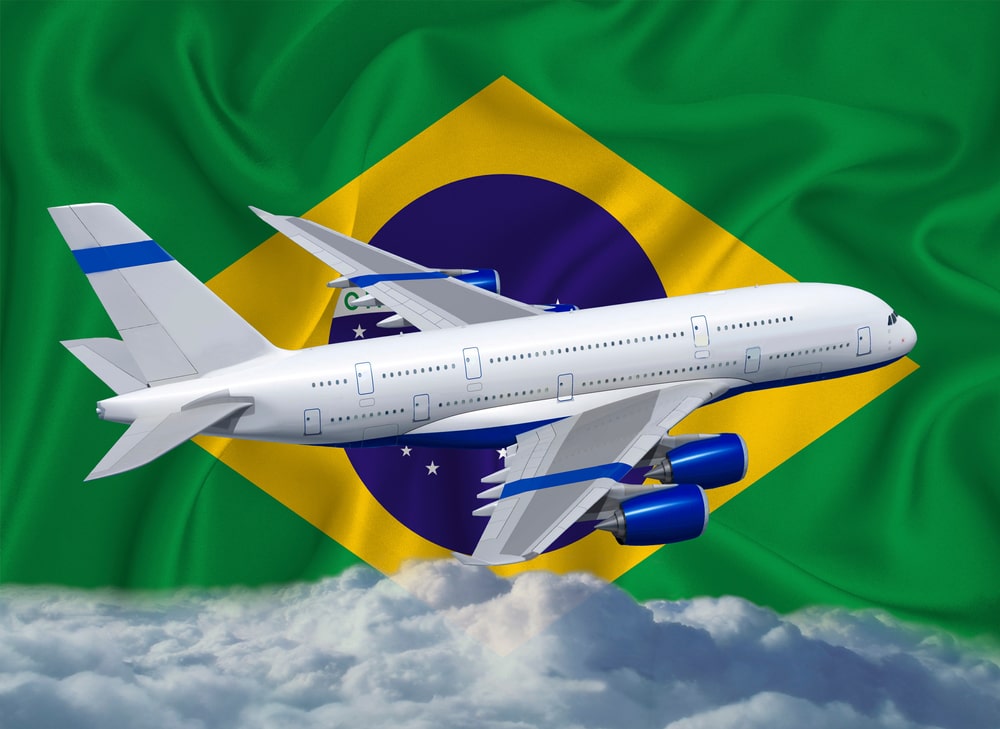
98.5% of the lawsuits against airlines come from Brazil. Yes, you read it right. According to the International Air Transport Association (IATA), on average, there are about eight lawsuits in every 100 flights, which is a shocking number.
As a point of comparison, in the U.S, there was approximately one lawsuit for every 1.25 million passengers in 2019. Meanwhile, in Brazil, there was one lawsuit for every 227 passengers.
But how can we explain this? One of the main reasons is that Brazil is one of the countries with the easiest and most democratic access to lawsuits. And the roots to that go back to the 1990s, when the Brazilian Supreme Court found that the provisions of the Warsaw Convention had been largely superseded by the Brazilian Consumer Code. And that meant that Brazilian courts applied local rules to resolve these disputes – which has historically been more beneficial to consumers. .
From cancelled flights to delays, change in the original route, lost baggage, overbooking, lack of assistance or inability to complete reimburses, Brazilian passengers have found various reasons to take airlines to court.
According to Waltrick Associates, a respectable local law firm in Brazil, most of the time airlines do go against the Brazilian Consumer Code. The inability to relocate passengers whose flights were delayed or cancelled, as defended by the National Civil Aviation Agency (ANAC), for example, is largely disrespected. It also does not help that many flights are cancelled not because of issues with the aircrafts, but with a shortage of aircrew, which, according to the law, cannot work extra hours, hence generating more problems.
This, therefore, has significantly expanded airlines’ liability. . Ricardo Bernardi, Partner and Aviation Specialist at Bernardi and Schnapp law firm seems to agree:
“Such interpretations include the concept of presumed moral damage (in re ipsa) with a punitive component, applicable in events of baggage loss or delays as well as flight delays or cancellations, even if caused by force majeure or aviation safety,” he says. “Therefore, passengers commonly seek indemnification from airlines regardless of the reason for the flight delay or cancellation and without the need to demonstrate or produce any evidence of loss or damage.”
In, 2017, however, there was an attempt to bring parity to the situation, with an agreement that that the Montreal Convention would prevail over the provisions of the Consumer Code. And following IATA efforts, backed by the Civil Aviation Secretariat (SAC) and ANAC, legislation was passed at the Brazilian Congress in 2020 that has limited airlines’ liability for flight delays out of their control, shifting the emphasis on claims for moral damages instead.
Furthermore, to claim moral damage, passengers now must produce evidence. Despite that, Bernardi still urges more continued efforts, claiming that “several recent decisions issued by Courts are still adverse to airlines”. According to recent research by CNN in Brazil, the number of lawsuits against airlines rose 83% last year in comparison to the year before. Between January and April 2022 alone, there were 55,000 formal complaints made, in comparison to 29,000 over the same period in 2021.
Latam Airlines representative, Bruno Bartijotto, lamented that airlines spend about R$800m (£131.38m) in lawsuits, with 80% of this value related to moral damages.
“This creates barriers for the entry of new airlines, preventing an increase in competition, which would benefit consumers,” Bernardi says. “It also increases ticket fares caused by reduced competition and the costs resulting from the high volume of litigation and compensations awarded. This underdevelopment of the industry means the loss of job opportunities.”
Bernardi concludes that it is crucial to continue with efforts to explain to Brazilian courts the importance of applying the rules and principles established by international treaties and to show the harmful effects of enforcing local laws to regulate liability in air travel.
“This must be seen as a long term and constant effort which, if pursued with consistency and based on the correct legal grounds, will bring harmonisation of the system and create new opportunities for development of air carriage in Brazil, to the benefit of airlines, passengers, and the community as a whole,” he says.
The biggest challenge, however, will be convincing local society. Brazilian people have fought hard throughout recent history to reclaim their civil rights as a society, so each attempt to empower airlines (at their expense) should be met with resistance. But if it is true that every journey starts with the first step, this is a challenge local authorities must take on for the sake of Brazilian economy.

Related Articles
Aviation
Aviation
Aviation